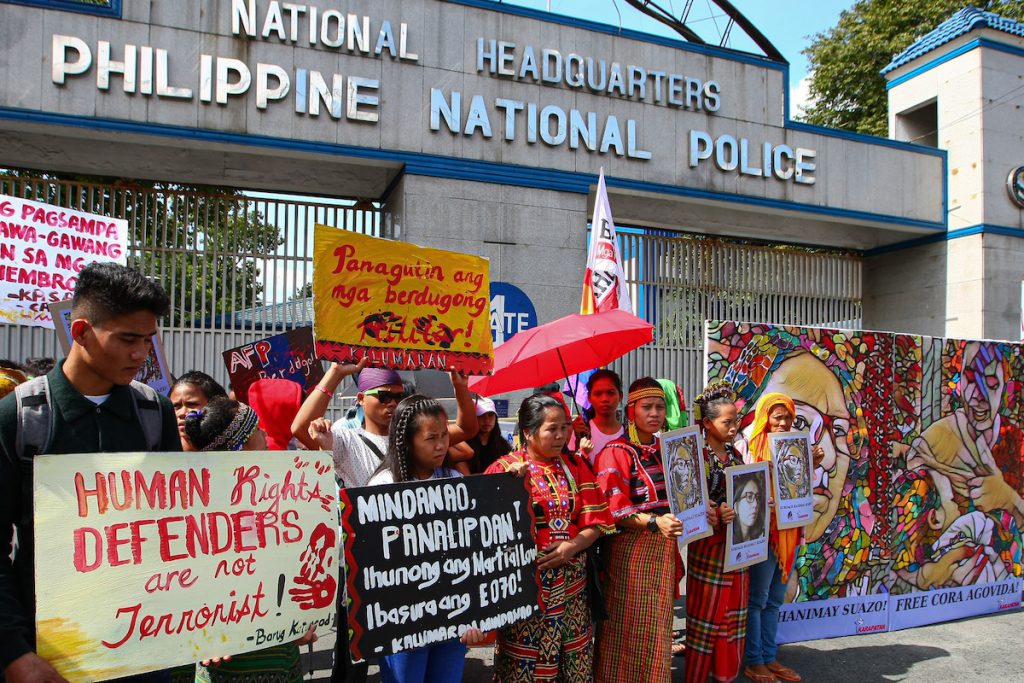The Philippines remains the “worst place” for land and environmental defenders in Asia, according to the latest report from the international human rights and environmental group Global Witness.
The report titled “The Last Line of Defence,” ranked the Philippines third overall with 29 killings of environmental defenders in the past year, trailing behind Colombia (65) and Mexico (30).
The report listed a total of 227 environmental defenders murdered across the world in 2020, the deadliest year on record.
The report said the worst killings on record occurred in the Philippines when nine indigenous Tumandok tribe leaders and members were massacred on Dec. 30, 2020.
The incident also led to the arrest of 17 other indigenous people, all of whom have been vocal against the building of the Jalaur mega-dam project on the central Philippine island of Panay.
Leon Dulce, national coordinator of Kalikasan People’s Network for the Environment, said the report “demonstrates that the murder of environmental defenders doubled under the [administration of President Rodrigo Duterte] compared to its predecessor.”
“We clearly need a new leadership that will protect our nature’s frontliners and stop destructive projects that aggravate our country’s ecological, climate, and human rights crises,” said Dulce in a statement.
The report noted that a total of 166 land and environmental defenders were killed since Duterte assumed office in 2016 until the end of 2020.
Dulce said he expects the plight of environmental defenders “will only get worse” under the Duterte administration with the appointment of retired generals to critical positions in government “despite their atrocious human rights track records.”
“Mr. Duterte has also embarked on extractive and destructive policies and programs such as Mining Executive Order 130, and re-intensified Build Build Build infrastructure like the Kaliwa Dam and the Manila Bay Aerocity, among others,” said Dulce.
“These industries have track records of really leaving a trail of blood,” he added.
In a statement, Kalikasan People’s Network for the Environment joined calls for an end to the human rights violations against land and environmental defenders around the world.
They group also urged the Philippine government to adopt the recommendations made by Global Witness to address the unabated killings of land and environmental defenders.

Among the recommendations made by Global Witness are the recognition of the “right to a safe, healthy, and sustainable environment,” and the “protection of land and environmental defenders so that they can continue their actions without worrying about terror-tagging and murder.”
Almost a third of the killings worldwide were linked to logging, mining, large-scale agribusiness, hydroelectric dams and other infrastructure projects.
Since the Paris Agreement on climate change was signed in 2015, Global Witness noted that an average of four environment activists have been killed each week.
Logging was the industry linked to the most murders with 23 cases – with attacks in Brazil, Nicaragua, Peru, and the Philippines.
Indigenous peoples, most often on the frontline of climate change, accounted for a further one third of cases.
Chris Madden, senior campaigner for Global Witness, called on governments to “get serious about protecting defenders.”
He said companies must start “putting people and planet before profit’ or he warned that “both climate breakdown and the killings” would continue.








